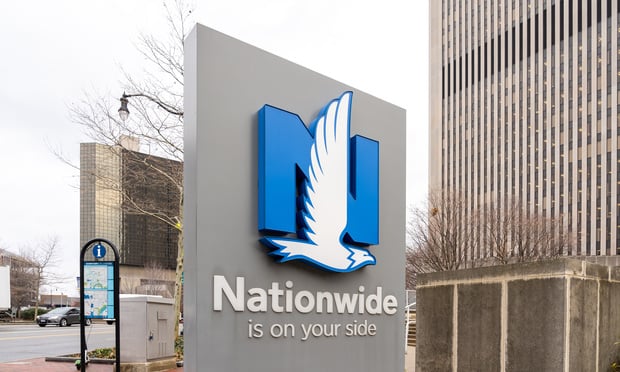CEO Cherkasky sees firm retaining top dog status
Marsh & McLennan Companies plans to make up for revenues lost when the company surrendered hundreds of millions in contingency commissions by driving costs and inefficiencies out of its system rather than jacking up fees for clients, the firm's CEO emphasized last week.
In an exclusive interview with senior editors from National Underwriter, Michael G. Cherkasky–MMC's president and chief executive officer, as well as chairman and CEO of its Marsh brokerage subsidiary–said the firm is in the midst of an efficiency drive, including the elimination of tens of thousands of unprofitable accounts, after a layoff of some 5,500 employees.
“You don't make it up in revenue, you make it up in cost [cuts],” said Mr. Cherkasky, when asked how the firm plans to replace the loss of some $840 million in market service agreement commissions it agreed to return to corporate insurance buyers. The rebate deal was part of a settlement with New York State Attorney General Eliot Spitzer of a civil suit alleging bid-rigging and steering of business to trigger contingency fee deals.
“We have already taken out 5,000 people, and by taking out 30,000 or so non-profitable accounts and then taking out the people who service those accounts, we can take out enormous cost and at the same time not forfeit any service to our full-service accounts we want to keep,” he said.
However, MMC is not simply dropping those clients–usually generating $10,000 or less in revenue–but is working to place them elsewhere, passing along the names or referring clients to other brokerages and agencies anxious to take the business.
“These are not bad clients,” he emphasized. “We are just not as efficient as we need to be to handle their business.”
On the issue of raising service fees to buyers to make up for lost contingency fee income, he said clients will choose whether they want to deal on a commission or a service fee business, and Marsh will not focus on one or the other option.
“We will be looking for only profitable business,” he continued. “We are only being paid by one side now. We need to be paid at something that is fair value, but we have to also understand that we can't just walk in [to see our clients] with the bloody nose that we have and say, 'pay us more.' It just doesn't work that way.”
At some point there will be an increase in fees, but he said it would be minor and would not take place until the firm is comfortable that its customers understand the services it provides and their worth.
One area Marsh needs improvement in is technology, according to Mr. Cherkasky. He characterized the firm's tech infrastructure as “not world class” and said its systems need to be substantially better–both for internal auditors and clients needing access to information in an era where disclosure is a critical requirement.
He envisioned the day when customers will be able to do much of their business online as well as access all of their account information over the Web–options that are not possible today.
The upheavals that led to Mr. Cherkasky taking the helm at MMC began in October 2004 after Mr. Spitzer filed his civil suit. In late January, without admitting guilt, MMC announced a settlement with Mr. Spitzer for $850 million, along with substantial changes in business practices. The money will be paid into a restitution fund over a three-year period, going to clients whose accounts were subject to contingent commission payments.
Mr. Cherkasky said that 110,000 letters have gone out alerting clients about the fund. So far, about 30,000 said they would take part in the agreement, which means they will accept payment in lieu of suing the company over the issue of contingency fees. Only one client has declined the agreement thus far, he noted.
As for his own future, Mr. Cherkasky said he plans to remain at the head of MMC for the long term. “I'm committed to the long haul,” he stated.
He conceded that Marsh has lost some good accounts, which he said the company finds “upsetting,” but added that overall, under the circumstances, client loss has been “very low.”
As far as keeping key players on board, he said MMC has managed to retain many of its most valuable employees.
“We have had phenomenal success in keeping the people we need to keep,” he said. “You always have about a 4 percent turnover, and we are running a little higher than that, but compared to all of the turmoil there has been in this company, it is remarkably low.
“What I keep asking everyone is, what company do you believe offers the biggest upside opportunity, and everyone answers, it is Marsh,” he said. “With all the blemishes and issues, if we get it right and handle it right and manage it right, we'll do just fine.”
Quotebox, with Cherkasky mug:
“We need to be paid at something that is fair value, but we have to also understand that we can't just walk in [to see our clients] with the bloody nose that we have and say, 'pay us more.' It just doesn't work that way.”
Michael G. Cherkasky
MMC President & CEO
Want to continue reading?
Become a Free PropertyCasualty360 Digital Reader
Your access to unlimited PropertyCasualty360 content isn’t changing.
Once you are an ALM digital member, you’ll receive:
- Breaking insurance news and analysis, on-site and via our newsletters and custom alerts
- Weekly Insurance Speak podcast featuring exclusive interviews with industry leaders
- Educational webcasts, white papers, and ebooks from industry thought leaders
- Critical converage of the employee benefits and financial advisory markets on our other ALM sites, BenefitsPRO and ThinkAdvisor
Already have an account? Sign In Now
© 2025 ALM Global, LLC, All Rights Reserved. Request academic re-use from www.copyright.com. All other uses, submit a request to [email protected]. For more information visit Asset & Logo Licensing.








